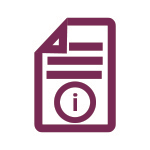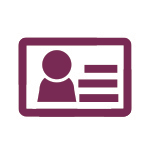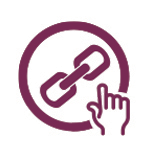System and Network Rules and Guidelines
This document describes what is expected of you as a user of the computing systems at St Vladimir’s Seminary. It is not intended to be a complete list of permitted and prohibited activities, but rather a guideline for the ethical use of our hardware, networks, and software. Other applicable policies are noted in the Student Handbook, Faculty Handbook, and Employee Handbook (as appropriate) and on the web site http://techsupport.svots.edu. Your signed assent to this document signifies your acceptance of these policies as terms and conditions for your use of the seminary’s systems. Violations of these principles and guidelines may result in the loss of login privileges and other disciplinary actions.
Logins: Your login is for your personal use and no one else’s. Do not give your password to anyone else. You are required to notify the seminary if you believe that system security has been compromised.
Likewise, the seminary computing resources are primarily for the use of the seminary. You are allowed to use these resources and must not share them with others that do not have login privileges.
You must log off when you leave a seminary computer other than momentarily. You must not use another person’s active login for any purpose, but rather must log out of any other accounts before using the computer yourself.
Unauthorized Use: Unauthorized use of the seminary computers and the seminary network may involve not only a transgression of seminary policy—subjecting you or others to disciplinary action—but may also be a violation of state and federal laws and have criminal and civil penalties.
You do not have permission to use seminary administrative programs unless specifically authorized to do so. You must not attempt to determine how these programs work (“de-engineer”).
Privacy & Confidentiality: As a user you must respect the privacy of others. Examples of privacy invasion include reading other people’s mail, sending anonymous mail, using accounts other than your own, reading or deleting unprotected files, etc. We consider data on the disk as real property. As such, finding a file in another user’s directory that is readable to the world is like finding a house with the front door unlocked. It is wrong to read that file without invitation from the owner, just as it is wrong to go into a house with an unlocked door and watch TV.
We will respect your privacy, but as owner of the system we reserve the right to inspect electronic mail or other files if the need arises. We do not expect to need to do so unless there are technical problems that we need to fix. In addition, your keyboard input may be monitored in the event of a perceived security incident.
You must also respect the privacy of printed output as well as on-system files belonging to an individual user.
If you are working for the seminary or on a seminary system, whether paid or not, any seminary information should be held in strict confidence. This is the normal business practice in the outside world and it also applies here.
Licenses: Much of our software is covered by license agreements between the seminary and other companies and organizations. You do not have the right to copy programs from the seminary computers for your own or other use elsewhere - this is both a violation of copyright and of simple ethics. You must not install any programs on any seminary system, including personal computers—there are severe penalties under law. The seminary’s stated policy is that illegal copying is both immoral and criminal.
Where programs have been developed specially for the seminary, or data gathered into databases of the seminary, you have rights neither to determine how these programs function nor to browse the databases. Writing of programs to access seminary data—or altering existing programs—is not permitted under any circumstances.
Electronic Mail: You should treat the use of electronic mail as you would any correspondence. Be careful that others beyond your intended recipient may read what you write eventually—even without your permission.
Internet: You need to be aware that excessive time spent browsing the Internet, and some Internet content, may be dangerous to your well being. Use the Internet wisely. Be circumspect in your use of social networking sites (e.g., Facebook), discussion groups, and mailing lists. Be mindful that as a seminarian, you become, in a sense, a public figure.
Do not download programs from the Internet onto seminary computers.
Resource Utilization: Be mindful that the seminary does not have unlimited resources; you share Internet bandwidth and other computing resources with others in the community. The seminary reserves the right to limit your usage of the systems if you do not exercise reasonable discretion.
System Maintenance: You must not alter the configuration parameters of programs, change network hardware, plug in unauthorized devices, etc. All such activities are reserved to TechSupport. Suggestions may be sent to
You should take care not to alter or damage interface devices, nor to alter or change cabling and connectors. Do not allow cables to be damaged by stepping on them, rolling chair wheels over them, or allowing them to be constricted behind desks or furniture.
ResNet: You are required to submit your hardware’s ResNet information to the Technology Department as soon as possible. Failure to do so may result in restricted Internet access. See the “Quick Start Guide” for instructions.
Reporting Trouble: Problems with equipment and with computer programs should be reported to
THESE RULES & GUIDELINES are not meant to be complete, but merely indicative of the standard of conduct that should be maintained by all users of the seminary systems and networks—regardless of whether the user is a student, a member of the staff, a faculty member, or a guest.
YOUR ACCEPTANCE of these rules and guidelines is a condition for use of the seminary systems and networks. If you do not wish to observe these rules and guidelines, you should make this known and your login will be deactivated. Violation of the rules and guidelines may subject you to disciplinary action—and/or civil and criminal penalties when appropriate.





